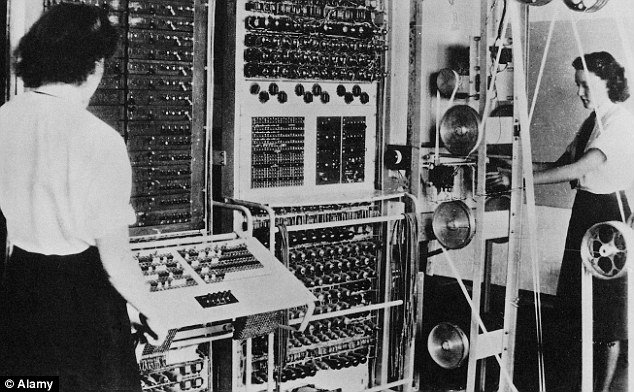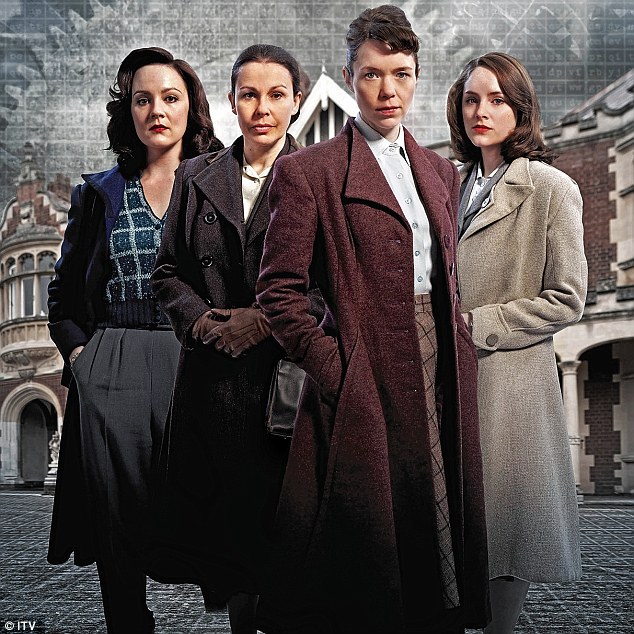
How extensive were the contributions of the female code breakers in Bletchley Park during WWII?
The code breakers in Britain’s biggest intelligence hub in WWII, Bletchley Park, made very vital contributions during the war – from cracking coded messages made by the German’s Enigma machines to eavesdropping on the communications within the Japanese military. These had played essential roles in the greatest victories of the Allied troops against the enemies in WWII.
But it was only recently that light was shed to the works of these code breakers, most of whom were females. Much had been shrouded in mystery over the decades due to the Official Secrets Act these WWII code breakers were subjected to.
Now, ITV sets to reveal the scope of work the female code breakers did in Bletchley Park in its drama series, The Bletchley Circle.
More Fascinating than Fiction
According to author and historian Michael Smith, the works done by the 9,000 women who worked in Bletchley Park all through the years of WWII were “more fascinating than fiction”.
“Women played a variety of roles from lowly clerks to operating machines and breaking into ciphers and codes – the highest level of work you could do at Bletchley Park,” he added as a way of explanation.
One of the women who worked at Bletchley Park’s highest level was Mavis Batey – she was a Londoner who was sent to the intelligence hub at the young age of 19. Sadly, Mavis passed away last November at 92.
“She was one of the top codebreakers at Bletchley. She’s frequently described as one of the leading female codebreakers but I don’t think that’s fair – she was one of the leading codebreakers full stop,” Smith said about her.
She had worked closely with Alfred Dillwyn ‘Dilly’ Knox, who was one of the world’s topnotch ciphers expert that time, and was a great help in exposing the intelligence that greatly aided Britain win one of its most impressive naval wars against the Italians at Cape Matapan.
However, the greatest point in her code breaking career came in December 1941 when she was able to break down a coded message sent to Berlin from Belgrade; her deciphering made way for Knox and his team to crack down the Abwehr’s Enigma machine. (Abwehr being Germany’s secret service)
British intelligence was able to get hold of the Abwehr’s activities because of the works done by Batey and Knox; they were even able to send in false information to the enemy which had proved very vital for D-Day’s success.
Smith even pointed out that it could even factor into the prevention of nuclear war in Europe during WWII.
“The key thing in all of this is that [decrypting Enigma] allowed D-Day to go ahead. Without it, it might well have been put back two years. Bear in mind, this was at a time when the UK and USA were developing the atomic bomb which was later used on Japan,” he revealed then added…
“It’s not at all clear they wouldn’t have used it on Germany if they thought it necessary.”
Going Back to the Ordinary
Nevertheless, in spite of the heroic achievements done by Batey and other fellow female code breakers like Rozanne Colchester and Gwendoline Page, their contributions were not given the recognition they so rightly deserved during that era.
Smith described a “collegiate atmosphere” within Bletchley Park where the female workers had the freedom to challenge their male colleagues but the truth was, they were paid a third less compared to the latter and after WWII ended, many just blended right back into the domestic lives they once had before the war broke out.

When 1950s came in, the time centered in ITV’s The Bletchley Circle, most of the 9,000 female code breakers who worked in Bletchley Park had become mothers and housewives including topnotch Mavis Batey.
Ordinary life for women in the 40s and 50s was translated into getting married and having children, not the kind of life or work they once had at Bletchley Park.
Sadly, only 600 of these 9,000 female code breakers went on to work for the newly-established GCHQ as well as the other branches of the secret services.
“These women had to really play down their amazing abilities, their strengths and minds. They had to pretend they hadn’t done anything special in the war and that means Lucy has to downplay her intelligence. She is upholding the Official Secrets Act,” actress Sophie Rundle, who is playing code breaker Lucy in the ITV series, said.